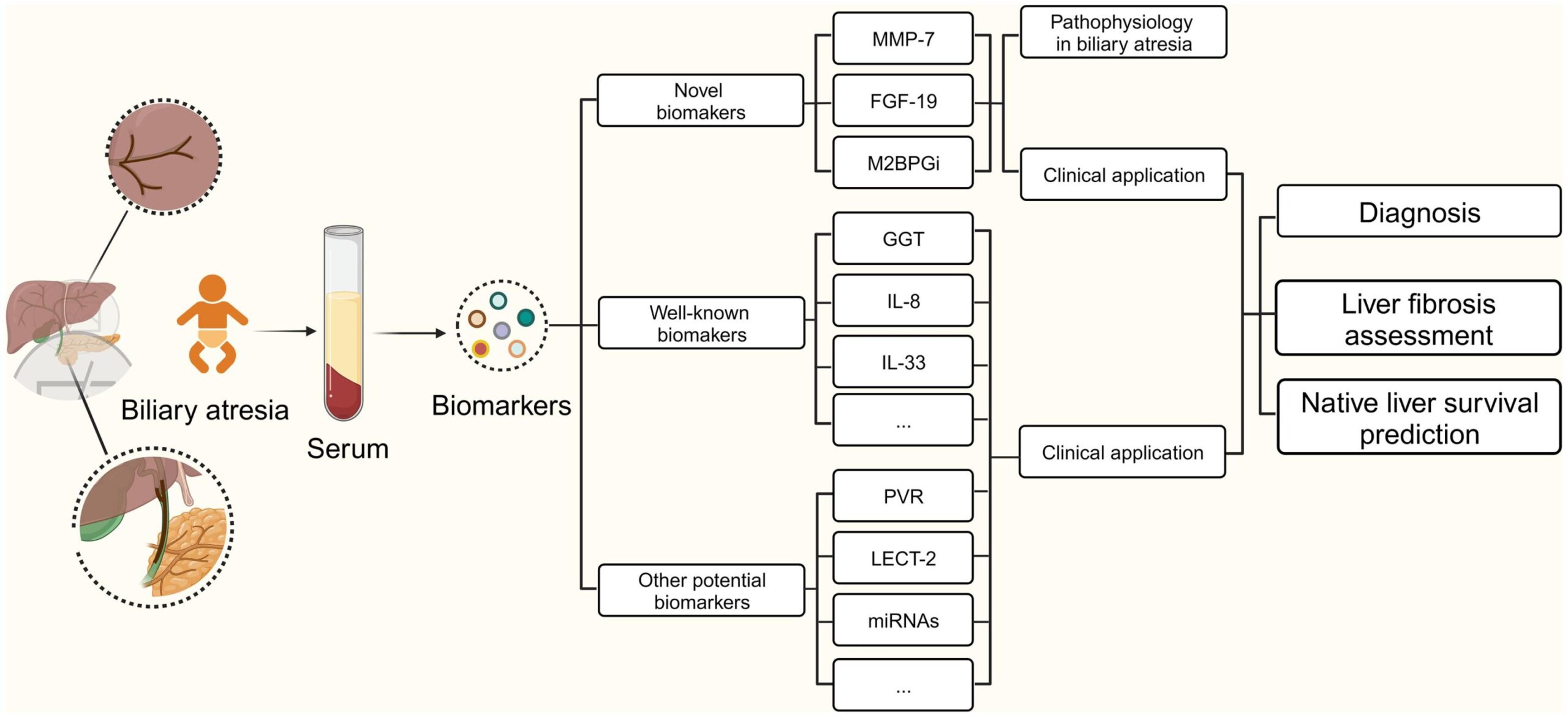Biliary atresia (BA) is a severe neonatal liver disease with unclear etiology, leading to cirrhosis and the need for liver transplants. Early diagnosis through Kasai portoenterostomy (KPE) is crucial, but non-invasive diagnostic methods are lacking. Key biomarkers like MMP-7, FGF-19, and M2BPGi show promise in assessing disease severity and guiding treatment decisions. Established markers like GGT and circulating cytokines also play a crucial role in monitoring disease progression. Research into these biomarkers aims to improve clinical outcomes for BA patients. Integrating these biomarkers into clinical practice could enhance early diagnosis and optimize management strategies for BA.
Source link
Progress in biomarkers related to biliary atresia
